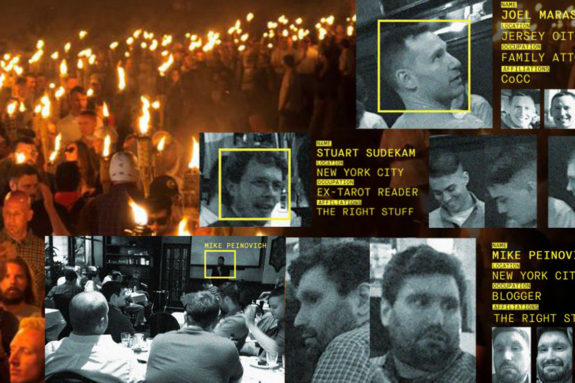Be cruel, poets, so that the rest of us may be kind.
Cruel Fiction
Wendy Trevino Commune Editions | $16.00 | 108 pages
Revealing the literary and cultural paradigms we take for granted—
that is, those which we don’t typically recognize as produced within the structures of power and capital—Wendy Trevino’s poetry collection Cruel Fiction shows us another way of seeing. Trevino’s poems leave no doubt about the position from which she speaks, and to whom she speaks, asking me likewise to clarify my own position as a reader and comrade to the struggles she agitates for. Her words invoke a political milieu that rises up against masters, calling all rebels to dismantle the racial capitalist order. Trevino’s poems unravel a eugenicist blood myth deeply embedded in the Mexican and Chicanx cultural archive, one designed to justify a racial caste system and the violence that maintains it.
It’s rare to read poetry that concerns itself with the particulars of how to get things done. Trevino’s poetry does not ruminate on metaphysical concepts, nor does it approximate heady political theory. Instead it works out the complications and obstacles of fighting back, and it does this in terms recognizable to ordinary people. In a nod to Diane di Prima’s Revolutionary Letters, Trevino includes a georgic poem in her collection titled “Revolutionary Letter,” which sets forth some practical advice for revolutionary struggle: “waste as little energy as possible / fighting people who stand in the way, which is to say don’t talk / don’t argue, just get them out of the way of the fight you came for.” In other words, don’t waste your time waiting for people to change, don’t wait for people to agree with you to do what you need to do. If you spend too much time worrying about what other people think, the action will suffer; in fact, it might never even happen. In another poem, we are reminded that words cannot on their own do what needs to get done: “I can see why / People have compared [writing poetry] to dance, but have you ever / Danced in the streets? It’s better not to do it by yourself.” Doing things by ourselves doesn’t get us to revolution. Her use of the second-person point of view in “Revolutionary Letter” speaks directly to the reader. It gives the impression of a “we” being created, materializing through our growing affinity for its expressed politics.
Without being prescriptive, Trevino’s work delivers useful advice, helping comrades recognize each other. Rather than projecting an ideal onto a political situation, Trevino works from the streets outward. When she writes “[c]op cars on fire. It’s inevitable. Maybe we’ll see each other,” you really feel it. Who can forget the nationwide protests in the fall of 2014, how the insurgent masses took to the streets and shut down freeways to fight back against the police? Recall your comrades’ eyes through their masks, their gait, their boldness. We are left with the sensation of being in the midst of revolt with her, or with the hope to be there once again. Maybe, with this sensation, we will spend less time casting shadows and more time doing the shit that needs to get done.
Neoliberal Identity Politics
Trevino’s poetry features high-quality burns that might either make you chuckle or feel personally attacked. At the heart of it is a profound critique of identity and representation. Identity politics is a somewhat nebulous term that can refer to more than one thing—which perhaps is why Trevino never directly criticizes it. In my reading, the politics of representation that Trevino addresses in her poetry are very specific: she critiques the deployment of identity by those who seek individual gain, passed off as a “collective gain” for the marginalized “community” while perpetuating the very system that disempowers that community. This dynamic safeguards racial capitalism by excluding the oppressed while defensively allocating a coveted seat at the table to elected representatives who will act as junior partners of white supremacy. This so-called meritocratic process is then cited by political elites to justify the current racial order, and the masses internalize this narrative. What we have learned by watching this cycle repeat itself time and time again is that identity does not equal politics—and that those in power who equate the two do so to the detriment of subjugated groups. It is through this very structure of representation that the racist order is preserved. Recently, for example, Representative Alexandria Ocasio-Cortez voted to fund Border Patrol and ICE—after having called for ICE’s abolition. Representation is not a form of kinship; it is a separation, an abyss which swallows the dreams of working-class people of color.
On kinship and identity, Trevino writes: “I remembered why I hesitate to talk about these things. Because what / I am trying to say is that we should really think about who our friends are.” These lines tell us that, rather than judging people based on their backgrounds, the means to revolution involve speaking about our positions on important political questions. Striving for a politics of authenticity is not the work of liberation. We are not born with politics; politics are something that we develop and do. That is not to say that race, gender, and class don’t inform politics—they absolutely do, but identity itself is not a political program. Receiving a paycheck by catering to white supremacy is not liberatory; fighting to end capitalism is. A radical politics of liberation relies upon networks of coordinated people working to destroy a system that is killing black, indigenous, and poor people. Trevino shows us that the acts of writing poetry, of naming certain types of identity-based oppression without connecting them to an anti-capitalist critique, and of gaining representation within a racial capitalist system, do not constitute an adequate political program to end genocide and subjugation.
The Borderlands
One of the cultural paradigms Trevino calls into question is the one represented by Selena Quintanilla-Pérez, the darling of millions of Chicanxs and Mexican-Americans in the 90s. Despite her status as a hugely popular cultural icon, there’s no evidence that her politics were critical of capitalism or the state. The only evidence points towards elite class politics, even as she made her money representing a working-class Latina identity. There is room for diversity in capitalism, according to the capitalist politics of representation. It’s the Amerikan dream: we dream of Selena as she dreams of capital.
Trevino’s borderlands Texan roots (explored in “The ‘We’ of a Position”) gives context to her critique of Selena and another cultural icon, theorist Gloria Anzaldúa, throughout the book. The Anzaldúan slogan, “ni de aquí, ni de allá,” a concept developed in her 1987 book Borderlands/La Frontera: The New Mestiza, situates the mestiza subject as mediator of la raza cósmica, between black, indigenous, and white people—and indeed, as the idealized racial subject. Aside from being a product of clearly eugenicist principles of blanqueamiento, the role of a racial mediator celebrated by Anzaldúa’s text is aligned with a conceptual middle ground, which is associated with moderation rather than with a radical politics that would seek the destruction of the institutions driving racial capitalism. Trevino is no mediator, nor does she subscribe to the narrative of la raza cósmica. Trevino’s understanding of borderlands history carries a hammer and hails from the streets, the place where it’s clear who your enemies are.
Know Who Your Friends Are
As Trevino says, poetry is not a brick through a window; but it is kind of like throwing a brick at a window, because usually the brick just bounces off and doesn’t break jack shit. As always, she reminds us that unlike poetry, only action is capable of concretely breaking things in a way that can actually lead to revolution. Nevertheless, Trevino’s poetry does provide us with something useful: writing that is honest, critical, and historical, something extraordinary that at the same time is developed from a commons. I try not to celebrate individual accomplishments when it is most powerful instead to recognize the collectivity behind all action, but Trevino’s work is provocative and refreshing in ways that we need poetry to be, if it can help us form those bonds of solidarity that support collective action. If I am a part of any “we” of a position, it is definitely the one Trevino shares.





